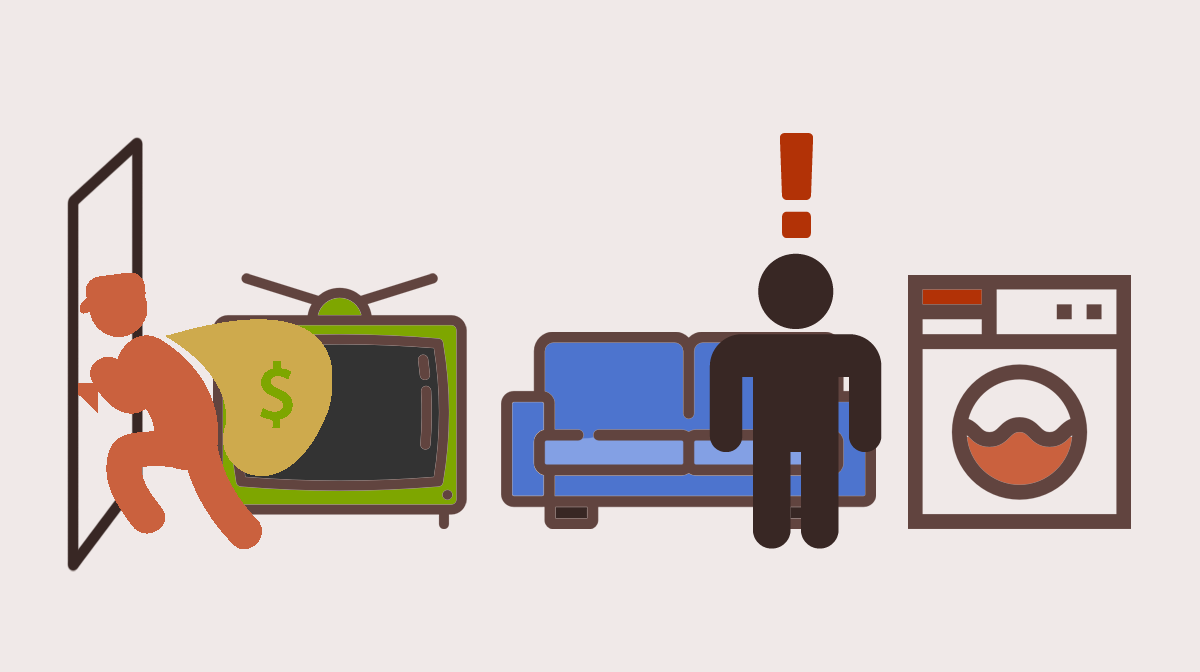Over the next few weeks the Craigslist Chicago "help wanted" section will see the return of a familiar springtime presence, the apartment locator services. Every year they hire a fresh crop of new agents to work the summertime rush, only to be let go again come autumn when the season ends.
For those of you who do not live in Chicago, I should take a moment to explain our peculiar setup. We have two tiers of residential real estate agents here. We have the standard real estate agents who handle the sale of houses and condominiums. We also have a special lower tier of agent that is only permitted to handle apartment showings and lease negotiations. Leasing agents have far lower training and certification demands, and in fact they can work for several months without obtaining any certification at all. While a handful of Realtors also dabble in rentals, most leave this lower income work to the leasing agents and focus exclusively on sales.
While some leasing agents work directly for individual landlords or rental departments of larger sales brokerages, most work for companies that specialize in rentals. Here at the RentConfident blog we generally refer to these companies as "apartment locator services" to differentiate them from full-fledged brokerage companies. While there's no denying that the locators provide a useful service to Chicago folks, there's no denying that it is a deeply flawed system.
The Problems
The leasing agent's license requires 15 hours of coursework, mostly in fair housing law. In Illinois leasing agents can work for up to 120 days at the start of their careers without a license. Recent changes to the law in 2018 require these new agents to be enrolled in a training course by the time 60 days have elapsed, but that still leaves them another two months to remain on the job without passing the course. Chicago has had an ongoing problem with leasing agents completing an entire season from hiring to firing without ever completing the pre-licensure work.
While some agents are fantastic, many new agents are notoriously sketchy. They're known to show up to occupied apartments without notice - in fact they're so consistent at doing so that my former employer had to stop sending occupied listings to locators entirely. I can recall one spring where I received a flood of complaints from residents about new locator agents showing up at 8am on a Saturday and hitting every buzzer on the panel instead of using keys to get in. Renters who work with locator services will warn others about the standard locator practice of showing a bunch of terrible apartments followed by a mediocre one about $100 outside your stated budget in order to convince you to rent overpriced apartments that would otherwise seem like total dumps.
Unlike Realtors, who usually obtain exclusive rights to list a property from home sellers, apartment locators in Chicago mostly work on a non-exclusive basis. This means that multiple locator companies can have the same apartment listed at the same time, and only get paid if they're the ones to source a renter for it. This can lead to uncomfortable situations for competing agents and apartment seekers who may arrive at the same time for showings of popular apartments.
The income for your average new rental agent is not phenomenal. Based on our analysis this time last year, even the most well-meaning agent could easily wind up in a situation where they're earning about $2.50 an hour. Chicago's minimum wage is $11/hr and will rise to $12/hr in July.
Scum in the Talent Pool
We've addressed the troubling pay scale for agents before in depth. But there are certainly people out there who are willing to work ethically and diligently for very low pay. As much as the industry itself is deeply flawed, a lot of the trouble stems from the way that apartment locators present the work when hiring. Their ads are designed to attract people who want easy money for little up-front commitment.
I browsed through the first early batch of help wanted ads on Craigslist. I have for you four ads to review. Two of them are help wanted ads for leasing agents. Two are for entry level food service and delivery positions. I have lightly anonymized the ads to remove anything that would make it glaringly obvious. Ready? Let's go.
Ad #1
You are outgoing, customer service oriented, hard working, passionate and enthusiastic about what you do and you strive to be the best.
• You like people, and people like you
• You are honest, dependable, and trustworthy
• You are a go-getter who is always ready for the next challenge
• You are highly motivated and want to succeed
• You want to work full time
• You have a car with insurance
Experience is a plus but is not necessary. We will train you. All that you need is a desire to earn large commissions and a strong work ethic. We will do the rest and help you become a successful [Job Title].
Ad #2
* 1+ year of experience as a [Job title] in [industry].
* Have a very positive attitude and be able to work as a member of a team.
* Always be able to work with our [customers] in a courteous and friendly manner, no matter the time of day.
* Have a flexible schedule and be able to work weekends and holidays when necessary.
* [Industry] certification prior to end of training
Ad #3
Skills/Aptitude:
•Presents self in a highly professional manner to others and understands that honesty and ethics are essential.
•Ability to maintain a positive attitude.
•Ability to communicate with co-workers and other departments with professionalism and respect.
•Maintains a professional relationship with all coworkers, vendor representatives, supervisors, managers, customers, and client representatives.
•Ability to use a computer.
•Ability to provide clear directions and respond to employees.
•Basic [industry] skills
General Qualifications:
•Willingness to be open to learning and growing.
•Maturity of judgment and behavior.
•Maintains high standards for work areas and appearance.
•Ability to work a flexible schedule helpful.
•Must comply with any dress code requirements.
•Must be able to work nights, weekends and some holidays.
•Attends work and shows up for scheduled shift on time with satisfactory regularity.
Ad #4
Who are we looking for?
We are looking for upbeat, self motivated professionals that enjoy working with people and are interested in starting a rewarding and successful career in [industry].
What do we offer?
- High income potential
- Training from the best in the business
- Cutting edge [benefit] and tech support
- Flexible schedule (Full and part time)
- Must be willing to obtain [certification] within first [number] days
Requirements
- Self motivated and career oriented
- Professional attitude and appearance
- Reliable and insured transportation
- Knowledge of the city
Did you figure it out? The leasing agent ads are #1 and #4. Kind of hard to tell, don't you think? Now, food service workers are awesome people. I spent some time working in food service (catering and grocery) myself. They're generally helpful and hardworking folks. In a city like Chicago with such a focus on gourmet restaurants, some of our high end chefs rival top architects, fashion designers and cinematographers in the areas of creativity, artistry and skill. However, I think we can agree that most food service positions are not "prestige" jobs. They are menial labor, attracting people with minimal education and few other employment options.
Leasing agents are responsible for ensuring that you and your family/roommates are going to be living in a safe and secure housing environment. They are your protectors against fair housing violations. They must be able to recognize major flaws in building construction and warn you about potentially life-threatening hazards in some of Chicago's oldest and creakiest buildings. They have to know the city as well as a cabbie, understand fine points of legal issues facing assorted protected classes, and be aware of a raft of laws and regulations ranging from fire codes to parking restrictions. But based on the ads I see for leasing agents on Craigslist, apartment locator services are looking to draw from the same pool as restaurants, Uber drivers and sandwich delivery personnel.
If a waiter messes up on the job you might get a case of food poisoning. If an Uber driver messes up you could get in a wreck and have some injuries, but it would be accidental and not due to lack of training. (Given Chicago traffic, it probably won't be entirely their fault, either.) If a sandwich guy flubs it, your sandwich might not show up by the end of your lunchbreak. If a leasing agent is not properly trained, people can wind up in housing situations that cause them lasting, chronic medical problems for life. People wind up involved in lawsuits that can last for months, if not years. If the past several years of content in this blog have taught you nothing else, I hope they've at least conveyed the complex nature of the rental industry in Chicago. It is no place for rank beginners.
How The Other Half Recruits
Allow me to go one step further to prove my point here. As I mentioned above, Chicago has two tiers of residential real estate agents. Below is a help wanted ad for an actual sales-focused Realtor, also found on Craigslist on the same day as the four up above.
Essential Job Duties:
- Obtain and Follow-up with prospects / leads via written and verbal correspondence. Demonstrate and convey value of product offering.
- Produce sales and work to obtain or exceed personal sales goals and the collective project goals as assigned by the Company. Utilize self-prospecting techniques to promote self-generated traffic and sales.
- Acting as sellers' representative, assist customers and guide them through the new home buying process in a professional manner, serving as a liaison between the buyer and the Client, with the assistance and support of the Sales Manager or Director.
- Ensure sales office and models are in good condition inside and out, informing Sales Manager of anything in need of repair.
- Prepare buyer contracts, riders and all other necessary paperwork required for processing the sale of the property.
- Gather and analyze competitive data to assist in sales and marketing efforts for the project.
- Act as brand ambassador to the brokerage community by promoting development and relationships.
- Set-up and maintenance of buyer files and forms, track loan commitment status, work with appraisers, and perform all other duties necessary to ensure a smooth closing.
- Work closely with the leadership for direction regarding the client's preferences with respect to contract preparation, riders, ordering supplies and all day-to-day operations of sales office.
- Attend all seminars, meetings, or events requested by the Company.
- Please note this job description is not designed to cover or contain a comprehensive listing of activities, duties or responsibilities that are required of the employee for this job. Duties, responsibilities and activities may change at any time with or without notice.
Preferred Qualifications:
EDUCATION and EXPERIENCE
- Licensed realtor in Illinois required.
- 5+ years of Real Estate related experience required.
- Experience in selling developments preferred.
KNOWLEDGE, SKILLS, And ABILITIES
- Ability to regularly communicate and analyze data to client and team to achieve project goals.
- Strong interpersonal skills with an ability to interact with external and internal clients as well as external team members (architects, contractors, client's representatives, etc.).
- Exceptional presentation and public speaking skills; impeccable grammar both verbal and written required.
- Technologically proficient in all areas including but not limited to: familiarity with various operating systems on PCs and Macs and ability to navigate computer software and hardware.
I think that's a little closer to what people have in mind when they think of a real estate agent of any tier. I know I would be far more comfortable entrusting my housing search to someone who answered that last ad over someone who answered any of the first four. Yet the apartment locator companies of Chicago continue to post help wanted ads that are designed to attract workers whose other options include cafeteria service, dog walkers and pizza delivery.
By continuing to define their employment type as something with no barriers to entry, apartment locators are ensuring that their industry remains the "fast food" of housing. Useful in a pinch, mediocre at best, rarely satisfying. They're also perpetuating the stereotype that renters are careless, disposable people.
There's a lot of well-meaning folks with an urge to improve the lot of the lower income sectors, the disabled and minorities. What sort of future would exist for the apartment locator industry if they tapped into those folks instead of pitching their business as a place for slackers to make a quick buck? Can you think of other ways the apartment locator industry could "pitch" itself in want ads that would bring in a better caliber of agents? Let us know in the comments!
RentConfident is a Chicago startup that provides renters with the in-depth information they need to choose safe apartments. Help us reach more renters! Like, Share and Retweet us!






